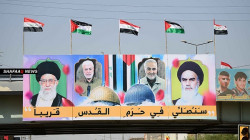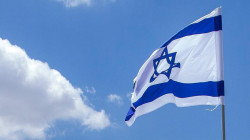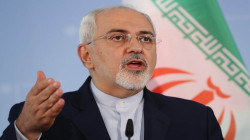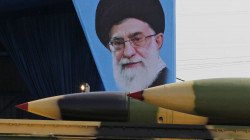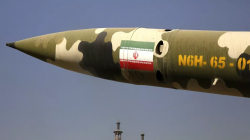Israel: preparation to foil any retaliated attack from Iran
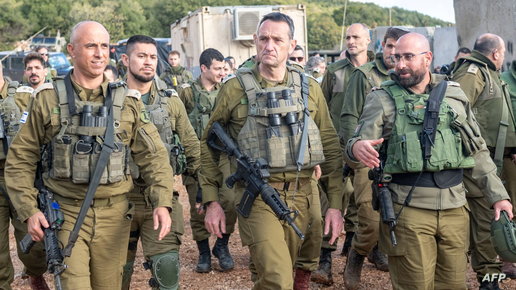
Shafaq News/ Israel expressed readiness to handle any scenario that may arise with Iran, Defense Minister Yoav Gallant stated on Sunday, after Tehran's threat to retaliate for the killing of Iranian generals on April 1 in an airstrike on its embassy in Damascus.
The attack resulted in the killing of Brig-Gen Mohammad Reza Zahedi, a leader in the Quds Force of the Islamic Revolutionary Guard Corps (IRGC), along with his deputy and five others.
Gallant's office stated Israel's readiness following his "operational situation assessment" with senior military officers. "Upon completing the assessment, Minister Gallant emphasized that the defense establishment has completed preparations for responses in the event of any scenario that may develop vis-à-vis Iran," the statement read.
In turn, Chief of General Staff Herzi Halevi asserted Israel's capability to deal with Iran both offensively and defensively.
"We know how to act forcefully against Iran in both near and distant places. We are operating in cooperation with the USA and strategic partners in the region," he said in televised remarks.
After the attack, Iranian top officials and leaders vowed revenge.
Major General Mohammad Bagheri, Chief of Staff of the Iranian Armed Forces, strongly condemned the recent attack on Iran's consulate in Syria, vowing retaliation to inflict maximum damage on the "enemy."
Bagheri made these statements during the funeral procession of Mohammad Reza Zahedi and the six others.
"The enemy will be disappointed by brave Iranian men."
In the same context, an Iranian military commander warned on Saturday that Israel's fear of "harsh Iranian retaliation due to the missile attack on the Iranian consulate in Damascus has plunged it (Israel) into a state of fear," indicating that Israel's fear of Iranian retaliation is more concerning than death itself, according to his statement.
According to the Iranian IRNA agency, Brigadier General Ahmad Khadem Seyed al-Shohada, the commander of IRGC's regional HQ in Southwestern Iran ("Karbala" HQ), praised the "enthusiastic participation" of the Iranian people in Quds Day marches.
"According to the statements of the Supreme Leader of the Islamic Revolution, the era of knocking on the door is over, and we will respond overwhelmingly to the usurping Zionist Israel, and this word has shaken the enemies' entity."
He clarified that "people around the world are now aware of the crimes of the usurping Israel, the killing of children, and this fake system has been exposed to everyone."
Khadem Seyed al-Shohada said, "The fake Zionist regime resorted to its trenches out of fear, but the terror of the Iranian Revolutionary Guard missiles is more worrisome for them than death."
The Islamic Republic has not yet disclosed the planned operation or details of its timing.
Last week, an American official confirmed that the United States is on "extreme alert" and preparing for a potential Iranian attack targeting Israeli or American assets in the region in response to an Israeli strike that resulted in the killing of an Iranian military commander in Syria.
President Joe Biden discussed the threat posed by Iran in a phone call on Thursday with Israeli Prime Minister Benjamin Netanyahu. A senior official in the Biden administration mentioned that "our teams have been in regular and continuous contact since then. The United States fully supports Israel in confronting threats from Iran."
Israeli media outlets have outlined potential scenarios in response to the assassination of Revolutionary Guard commander Mohammad Reza Zahedi, anticipating what they term "Iranian revenge."
Military correspondent Hallel Bitton Rosen from Channel 14 Israeli suggests that Tel Aviv is bracing for the prospect of direct Iranian attacks on Israeli military installations, with preparations including potential defensive measures should such assaults materialize.
Reports indicate an agreement between Israel and the United States, with the latter poised to support Israel militarily if required in the Middle East.
Haaretz newspaper, through writer Alon Pinkas, enumerated four possible scenarios for Iranian retaliation:
- Iran may opt for a calculated response, biding its time to select a symbolic and impactful target, considering the political and reputational ramifications post-Israeli strikes.
- Alternatively, a swift and proportional reaction targeting ships, embassies, or Israeli personnel abroad could unfold, potentially escalating tensions.
- A more drastic scenario involves Iran leveraging Hezbollah in Lebanon, opening a dangerous second front that could escalate into a broader conflict.
- The most extreme scenario envisions Iran venting fury not only on significant Israeli but also American targets in the Gulf.

